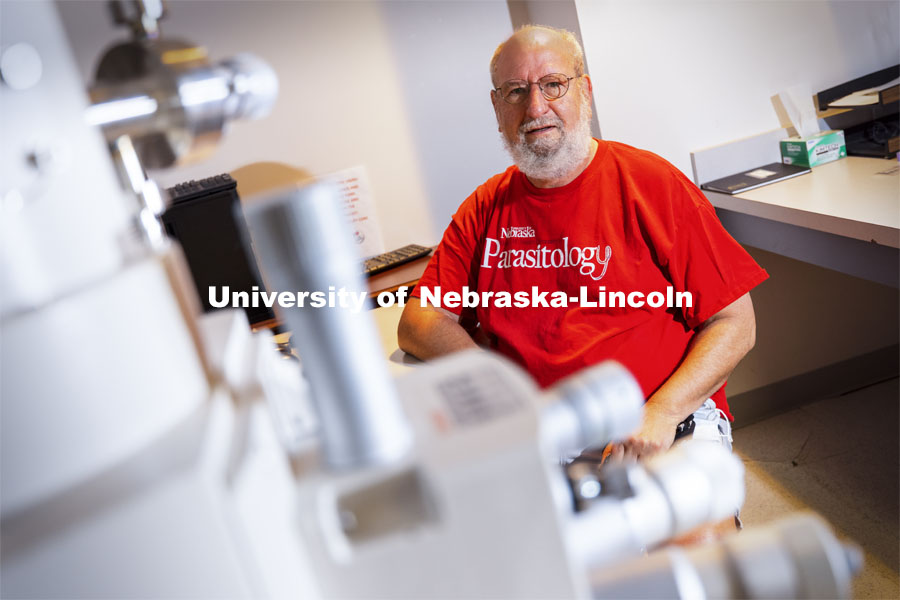
Title:
210512 Reinhard 003 (permalink)
Order Instructions:
To order this photo, send Craig Chandler an email and include the text '210512 Reinhard 003'.
Caption:
Nebraska's Karl Reinhard in his lab on East Campus. By analyzing the fossilized gut contents of a U.S. Marine killed in the Korean War, Reinhard and his colleagues have determined what the Marine ate to survive in the 12 days following a siege of the Chosin Reservoir by 120,000 Chinese troops. The analysis indicated that the Marine subsisted on so-called famine foods — eating mostly stems, roots and leaves from flowering plants. The case study helps illustrate the dire realities of trying to consume adequate nutrition after being separated from supply lines by overbearing enemy forces. May 12, 2021. Photo by Craig Chandler / University Communication.
Copyright:
© 2021, The Board of Regents of the University of Nebraska. All rights reserved.